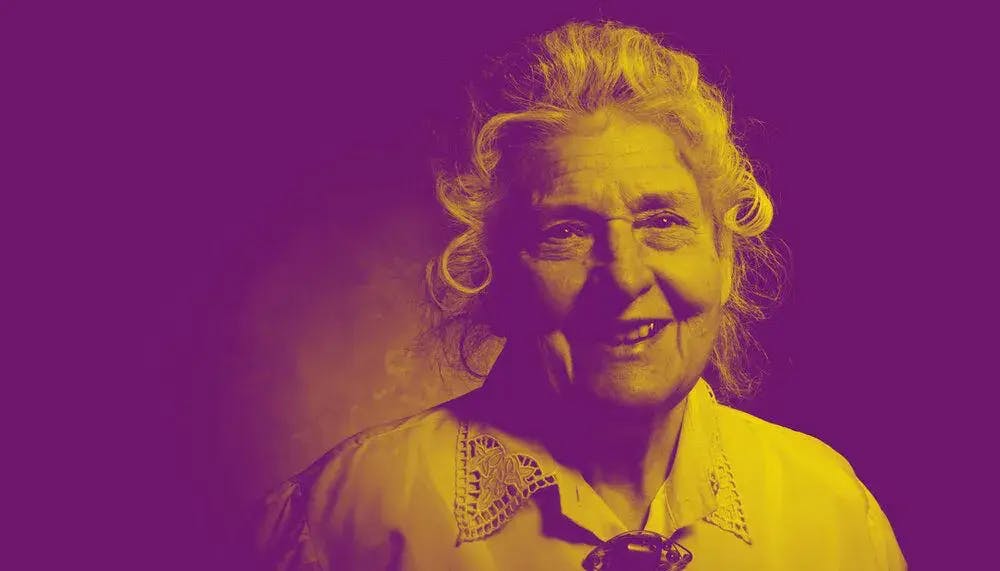Promoting Dignity in Care: What It Means

Estimated Reading Time: 7 minutes
Care homes have a responsibility to keep residents healthy and safe, as well as promote dignity in care.
Dignity in care means treating individuals with respect and supporting their independence and choices, including their privacy.
Here, we’ve explained what dignity in care means, why it’s important and the eight factors of dignity in care.
Kickstart your care search
Find the best care homes in your area through Lottie.
In this article:
- What is dignity in care?
- How care homes promote dignity
- Promoting dignity in a home care setting
- Why dignity in care is important?
- What are the eight factors of dignity in care?
- Upholding dignity in care
What Is Dignity in Care?
Dignity in care means valuing each individual's uniqueness, respecting their privacy and choices, and creating a safe environment that puts their wellbeing and rights first. It’s especially important to ensure the wellbeing of residents is always a top priority.
How Care Homes Promote Dignity
Care homes can promote dignity by tailoring care to the exact needs of the individual. This personalisation allows carers to learn what each individual likes and dislikes and how they want to be treated.
By treating everyone as an individual, a care home resident will likely feel as though their sense of self-respect is supported. It also shows that the care home is genuinely committed to treating everybody with dignity and respect.
Promoting Dignity in a Home Care Setting
There are a range of ways that a home care provider can promote dignity. Privacy should always be respected, while people’s opinions should always be taken into consideration where possible, such as how they’d like to receive their care. Other simple decisions could include what to wear and what to eat. Providing autonomy will help the person receiving home care feel more independent and respected.
You should also be respectful and compassionate when assisting someone with personal care tasks, particularly ones of a sensitive nature such as washing, bathing, using the toilet and getting dressed and undressed.
We’re partnered with some of the UK’s biggest home care providers. Click the link above to see what’s available in your area.
We’re here to help you find the right care home for you or your loved one. You can request a free list of care homes from our Care Experts, who will then share homes matching your budget, location and type of care needed. You can also search for care through our easy-to-use directory.
Why Dignity in Care Is Important?
In a care home, for residents to feel safe, well looked after and as happy as possible, they must be treated with dignity in all aspects of their lives, and their choices must be respected.
Carers and other staff working in care homes have various roles to fulfil that prioritise the needs and safety of residents.
Moving into a care home is a huge change, as many older adults will have previously lived independently, so carers have a duty to help them feel as comfortable as possible.
As a carer or anyone else who works in a care home, it’s vital to remember that for a resident, it’s their home. Everyone comes from different backgrounds and it’s important to make everyone feel included, safe and dignified in their own environment.

What Are the Eight Factors of Dignity in Care?
According to the Social Care Institute for Excellence (SCIE), eight factors relate to dignity in care. These factors help health and social care workers, nurses and other care home staff understand the importance of upholding dignity and treating every care home resident as an individual.
Choice and control - There are several ways to provide residents with choice and control in care. In a care home, carers can allow residents to decide what they want to wear, what they want to eat and how they’d like to spend their time/days. Being able to make decisions about daily life will empower residents and give them a greater sense of self-respect
Communication - It goes without saying that listening to what somebody is saying while also speaking to them respectfully will go a long way to forming trust between a resident and their carer. This respect should extend to involving the resident in any decision relating to their care, such as changes to their medication
Food and nutritional care - Food is to be enjoyed, and this should be no different in care! Some residents won’t like the same type of food they used to or that everyone else likes, so it’s important everybody has a choice over what they eat. Carers should always make residents feel comfortable around food, as everybody’s eating habits are slightly different. When creating meal plans, it’s important to involve the resident as much as possible, as this helps them have a sense of control over their life in the care home
Pain management - Older adults are more likely to experience discomfort, but may not always let you know how they’re feeling, which is why being able to detect these signs is really important. Changes to regular behaviour and social isolation are common signs to look out for. A resident is more likely to tell a carer how they’re feeling if they trust this person and feel comfortable around them
Personal hygiene - Appearance and personal hygiene are key to self-respect. Care home staff should provide residents with whatever support they need to feel good about themselves. One of the main ways carers can do this is by providing dignified and compassionate personal care, including help with washing and getting dressed and undressed. Carers should always ask for consent and explain what it is they’re doing and why
Practical assistance - Care home staff should provide practical assistance and support to residents where possible. Helping a resident with smaller tasks such as ironing, gardening or looking after their pet can help them feel more dignified
Privacy - Privacy is especially important for people receiving care. Care home staff can give residents a greater sense of privacy by doing things such as knocking before entering their bedroom. Small acts such as this will help build trust, creating stronger relationships between carers and residents. Respecting elderly residents' personal space and boundaries is important, as moving into a care home with other residents can be a big shift from living independently
Social inclusion - Being socially inclusive means ensuring a resident doesn’t feel left out during day-to-day life in care, such as during social activities. These social activities are also opportunities for residents to make a meaningful contribution to their community. With that said, residents shouldn’t be forced to take part in activities if they don’t want to
Upholding Dignity in Care
Promoting dignity is in the little things. From letting residents choose their own outfits to speaking respectfully with them, there are numerous simple yet effective ways to promote dignity in a care home.
However, the demanding nature of some care environments can lead to the feelings of residents being overlooked.
By making small adjustments through staff training and changes in attitude, residents can live dignified and happy lives in a safe environment.
If your loved one lives in a care home and you’re concerned about whether their dignity is being upheld, you may want to raise these concerns to management.
Lottie matches care seekers with the best care homes for their needs. You can request a free care home shortlist from our Care Experts, who will share homes matching your budget, location and type of care needed. You can also search for care through our easy-to-use directory.
Frequently Asked Questions
What does it mean to maintain dignity?
You can maintain a person’s dignity by recognising what they’re capable of and want to achieve. You should also show this person plenty of respect, including respect for their accomplishments and who they are.
How do we show dignity?
There are lots of ways we can show dignity to others, such as:
- Displaying empathy towards different life situations
- Listening to other people’s opinions and respecting their contributions
- Avoiding unprofessional behaviour that may make others feel uncomfortable




